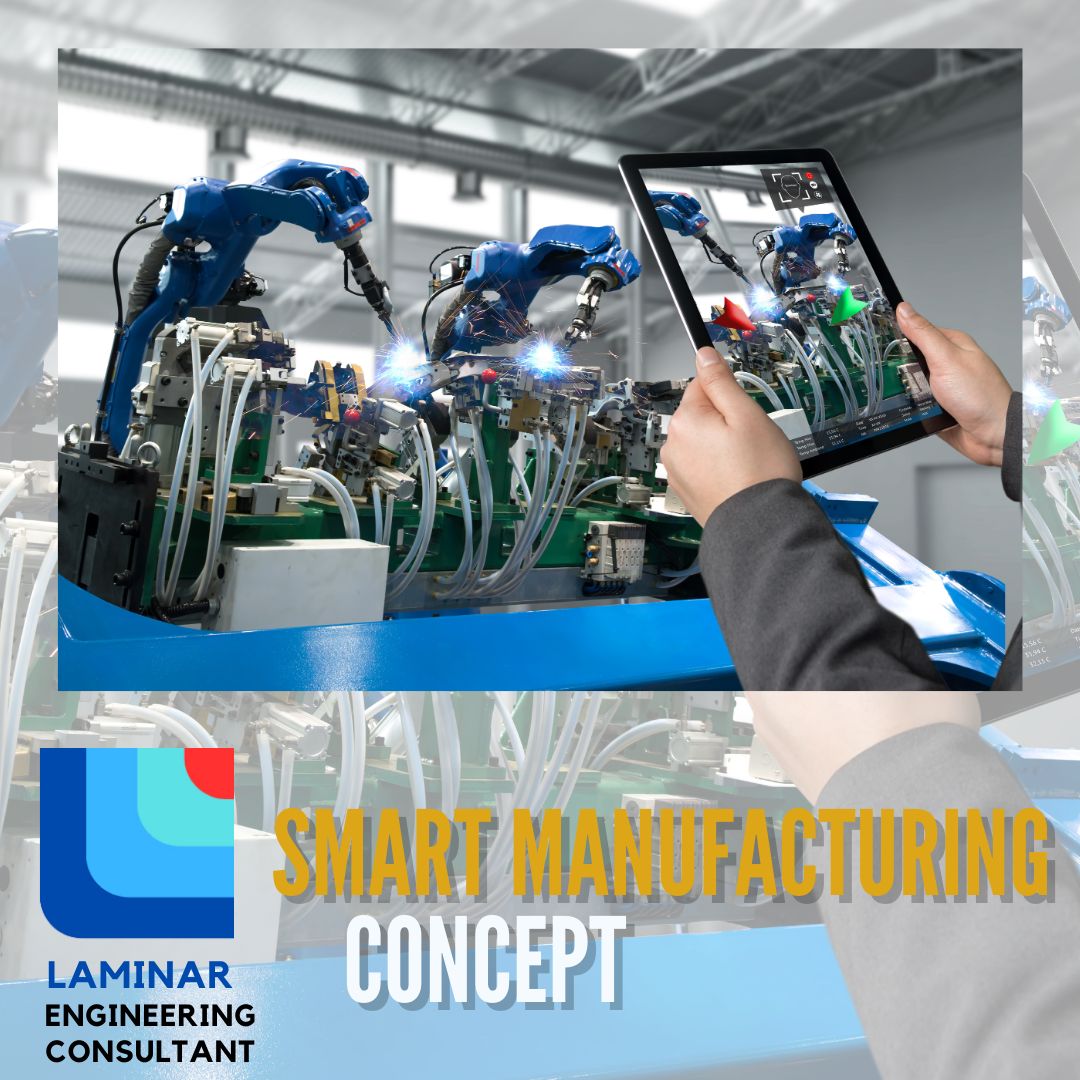The rise of manufacturing companies in Indonesia has led web developers to compete in offering cutting-edge platforms to support companies’ business processes. Problems arise when companies begin to realize that complex supply chains have vulnerabilities and are prone to disruptions due to human error. The longer the production process chain, the greater the attention to detail required by companies to avoid system disruptions.
The Smart Manufacturing Concept offers an alternative solution to streamline supply chain activities and other business processes. This concept is a combination of various technologies designed to optimize the manufacturing process, involving technologies such as IoT, data analytics, and Artificial Intelligence (AI). In the era of Industry 4.0, integrated technology concepts have been introduced, featuring algorithms capable of understanding a variety of production system issues. This concept is implemented in production machinery, making them work more effectively and efficiently while integrating with Big Data.
To support its management, there are several key components in the smart manufacturing system, including:
- Internet of Things (IoT): This refers to the interconnection of physical devices that are connected and communicate via the internet. In the context of smart manufacturing, these devices collect data from sensors, equipment, and machines on the factory floor. With IoT, manufacturing companies can monitor operational conditions, equipment performance, and reliability in real-time. Furthermore, IoT implementation provides far better connectivity between systems and equipment used, facilitating effective collaboration and coordination in the production process.
- Big Data: This refers to a set of data collected from various sources. It contains complex information, including operational parameters, machine performance, product quality, and energy consumption. Its other function is to analyze patterns and provide valuable insights. This analysis also enables accurate prediction and forecasting, allowing companies to plan and manage resources as efficiently as possible.
- Cloud Computing: This offers opportunities to store and manage production data in a virtual data center. Cloud computing plays an essential role in data storage, processing, and access. With cloud manufacturing, data can be accessed, and the management system becomes flexible for various related parties.
- Automation Systems: This refers to the use of technology to automate production processes. Companies can reduce manual labor, enhance efficiency, and minimize human error. By implementing automation systems integrated with other components such as IoT and Big Data, intelligent decision-making, continuous optimization, and real-time analysis are possible.
The implementation of this concept clearly brings positive impacts to every factory and company. However, it is important to note that implementing this concept is not as simple as it may seem. A prior evaluation of the existing systems is necessary, followed by aligning them with the new technology to be adopted.

